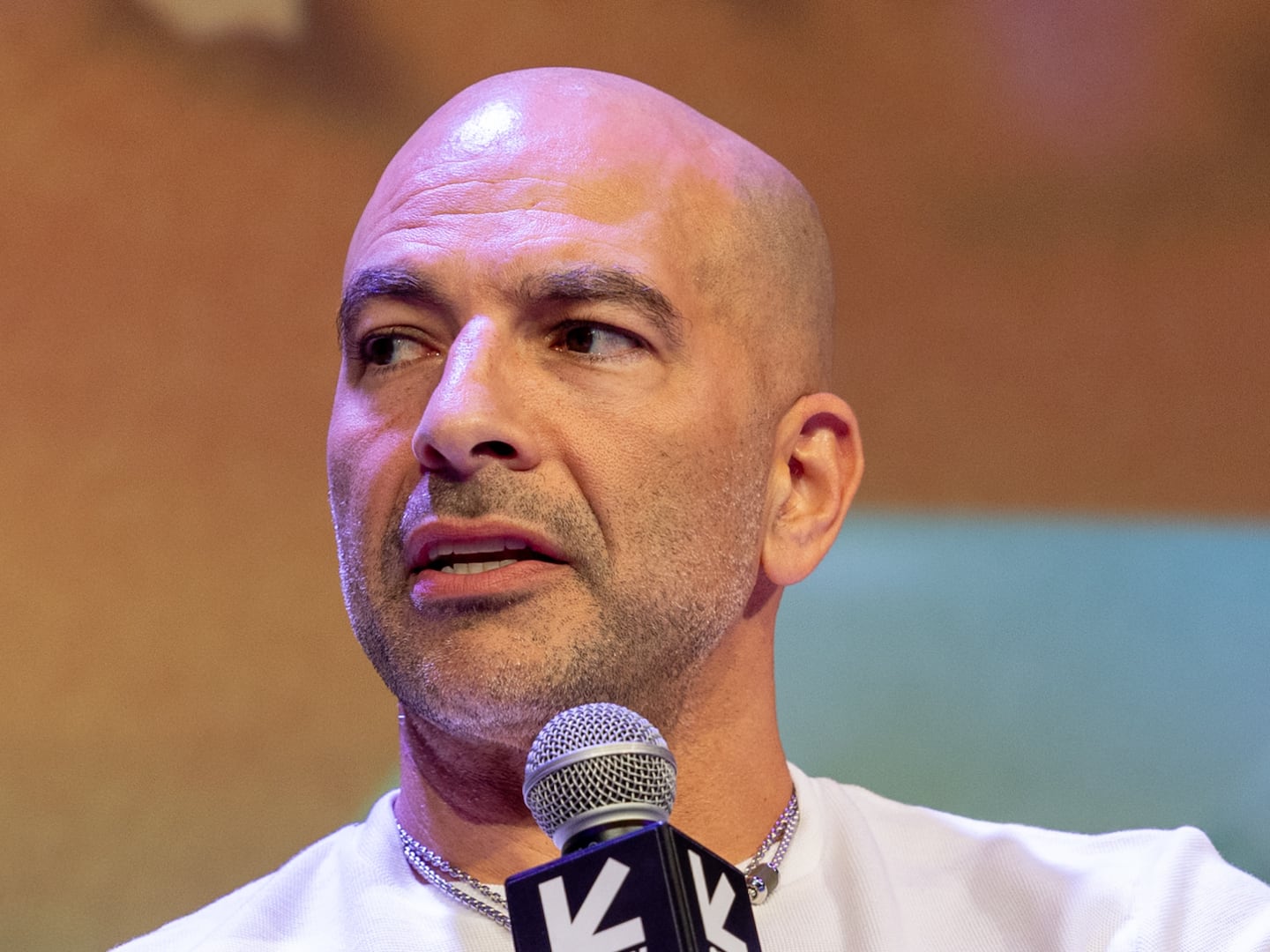What does it mean that the Federal Bureau of Investigation, or at least a certain number of agents within it, is apparently playing an all-but-open role in trying to elect one presidential candidate—or more to the point, to destroy the other? It’s without precedent in American history. For all the bad that J. Edgar Hoover did, threatening to destroy people’s careers, recording enemies, and developing dossiers filled with dark and unsubstantiated gossip, he never did this. He and his agents never used the media to declare war on a presidential candidate and try to flip a presidential election in the days before the outcome.
The leaks continue with ferocity. There were two big ones Thursday. First, that an indictment is “likely” in the bureau’s investigation of the Clinton Foundation. Second, that there was a “99 percent chance” that Hillary Clinton’s email server was hacked by “at least five” foreign intelligence agencies. These leaks were delivered to Fox News and The Wall Street Journal, among others; Murdoch properties, that is. Fox News’s Bret Baier had to dial the second charge back later in the day. Pete Williams of NBC News, who’s been a rare TV voice offering perspective since the opening minutes last Friday when the report of Director James Comey’s letter broke, was able to quote his own FBI sources last night to Chuck Todd, saying they were telling him the hacking allegation “is just not true.”
True or not, it’s getting out there and it’s getting reported. You may have read Thursday my Daily Beast colleague Wayne Barrett’s interview with James Kallstrom, the former head of the FBI’s New York office, who all but confirmed to Barrett the existence of this orchestrated leak campaign. You may also have seen Spencer Ackerman’s report in The Guardian, where he quoted one source as telling him that the FBI is “Trumpland.”
I don’t have my own bureau sources, I readily admit. But I have a sense of history and context, about the FBI generally and about its longstanding collective and institutional opposition to both Clintons.
In the movies and on TV, and often enough in real life, the FBI upholds and enforces the law and protects us from threats. Most agents are honest and diligent law-enforcement people who do strive to stay out of politics.
But one can have great respect for agents as individuals, and honor the reasons they’re drawn to a career in law enforcement, while still being clear-eyed about the culture of the institution as a whole. As Tim Weiner, who covered the bureau and the CIA for years and whose earlier Agency book won near-universal praise, writes in his new book, Enemies, the bureau has always been accountable mostly to itself.
It was founded in 1908 by Teddy Roosevelt. He couldn’t get a skeptical Congress to appropriate the money for a few police with the Department of Justice, so he just found the money elsewhere and created the force of 34 officers unilaterally. Thus, Weiner writes, “The FBI has never had a legal charter beyond the president’s oath to take care that the laws are faithfully executed, and presidents have strained against the strictures of that oath since World War I,” when the bureau first began to pursue those it classified as dangerous radicals, bending the Constitution if necessary to do so.
More often than not, the bureau has served presidents, especially Republican ones—there have been seven official FBI directors, and not one has been a Democrat. Hoover and Richard Nixon had a contentious relationship in some respects—indeed, the Watergate “coverup” was a coverup of the fact that Nixon ordered the CIA to block an FBI probe into the Watergate break-in. But they shared a basic paranoia about enemies and leftists that found them seeing eye to eye.
This has not always characterized the president-director relationship, though, which brings us to Bill Clinton and Louis Freeh. According to Freeh, he began his tenure trying to get along with Clinton and was spurned; Clinton recalls it differently. Whatever the case initially, by 1998, Freeh was far closer to special prosecutor Ken Starr’s team than Clinton’s. He sent agents to the White House to get a blood sample from Clinton so that Starr could have Clinton’s DNA to match it against that found on Monica Lewinsky’s infamous blue dress. The president was at an official dinner and excused himself, pretending he had to go to the restroom—in fact, he went to meet FBI agents and give up his blood.
Freeh hated Clinton and came to see him, by some accounts, as his top investigative priority. Freeh’s position, stated most publicly in a 60 Minutes interview at the time he released his book, was that he was appalled by what he saw as Clinton dragging his feet on pursuing the culprits of terror attacks on U.S. overseas installations, like the embassy in Dar es-Salaam and Nairobi, and at the Air Force housing complex in Khobar, Saudi Arabia. On the topic of terrorism, though, Freeh was himself rebuked by the Sept. 11 commission for not devoting nearly enough resources to the fight against terrorism; he blamed Congress for not ponying up the funds.
The point as pertains to now is that Freeh baked the Clinton hostility into the cake. It’s also worth recalling that Comey himself investigated both Clintons in the 1990s as a staffer for the Senate Whitewater committee. Now obviously, it may well be that on the merits and in good faith as they see it, today’s rogue agents really do believe that Hillary Clinton is guilty of a crime and should not be president. It’s obviously their right to think that. They live under the First Amendment like the rest of us; they’re allowed to have political opinions.
But their boss closed the investigation. It’s their job as agents to accept that decision. They’re not supposed to be in revolt against their superior’s edict, and they’re certainly not supposed to try to tip a presidential election.
But this is exactly what they’re doing. Writing in The Washington Post Thursday, Paul Waldman put it chillingly well. Noting how the campaign of leaks apparently forced Comey to write his infamous letter last Friday, Waldman argued:
And then it turns out that these agents are basing their investigation on a book called Clinton Cash by Peter Schweizer. Schweizer is the president of the Government Accountability Institute, an organization co-founded and chaired by Steve Bannon. Who is the CEO of the Trump campaign.
While the “imagine if the other side was doing this” argument can sometimes sound trite, in this case it’s more than apt. Imagine if a group of FBI agents were leaking damaging information on Donald Trump in violation of longstanding departmental policy, and it turned out that they were basing their innuendo on a book published by the Center for American Progress, which Clinton campaign chair John Podesta founded and used to run. Republicans would be crying bloody murder, and I’m pretty sure the entire news media would be backing them up every step of the way.
Indeed. Maybe this is partly the Democrats’ fault for not having the high-decibel outrage machine the right has. But should it really take a high-decibel outrage machine for the mainstream media to see clearly what’s going on here? How they’re being played? By a phalanx of actors who have explicitly vowed, as Waldman and Brian Beutler wrote Thursday, that they have no particular plans to honor the results of the election if they don’t like them?
The single most basic criterion that makes a country a democracy is that the side that loses an election honors its result (and yes, this will apply to Clinton if she loses; and yes, Al Gore honored the result in 2000 once the Supreme Court spoke). But it’s now obvious that if Clinton wins, these FBI agents, probably Trump himself, depending on the totals, and certainly Republicans in Congress like Jason Chaffetz will regard the outcome as a temporary inconvenience and immediately begin plotting how to undo it. That isn’t called democracy. I’ll leave you to put your own label on it.






